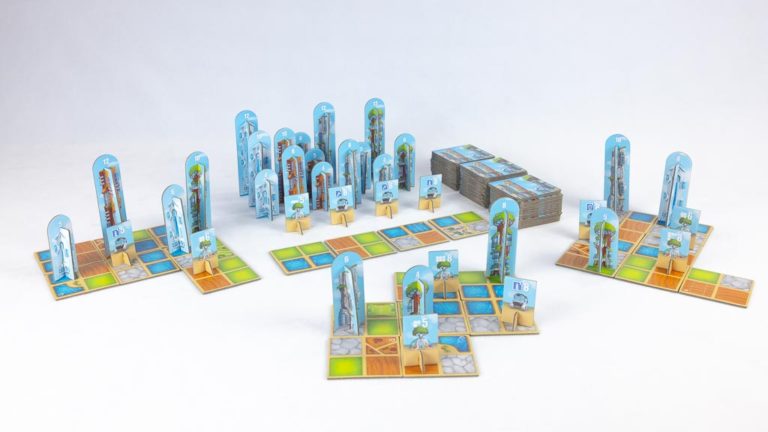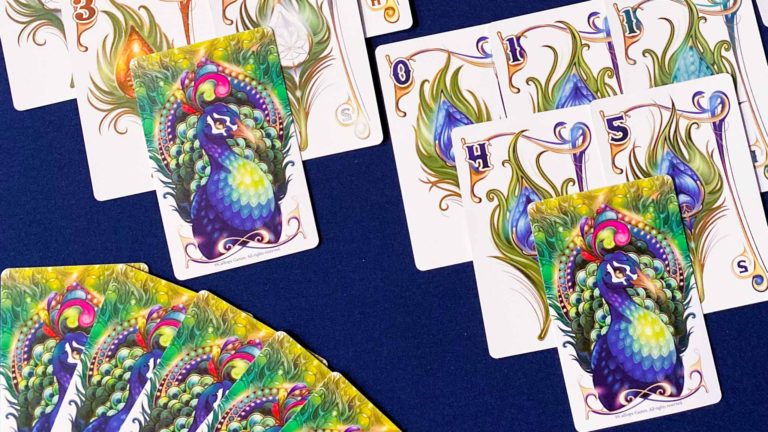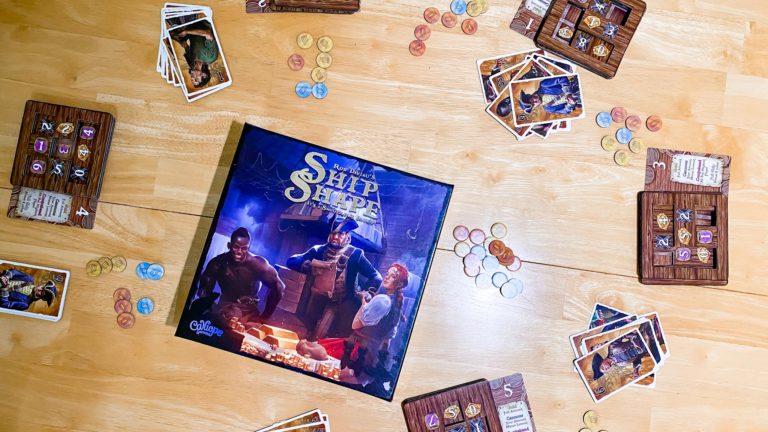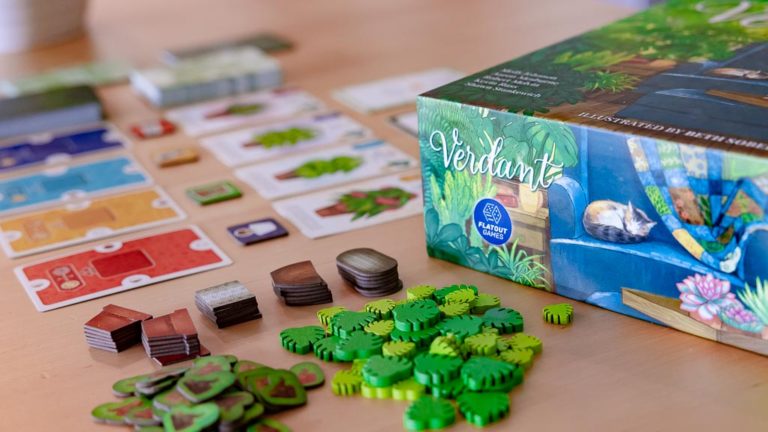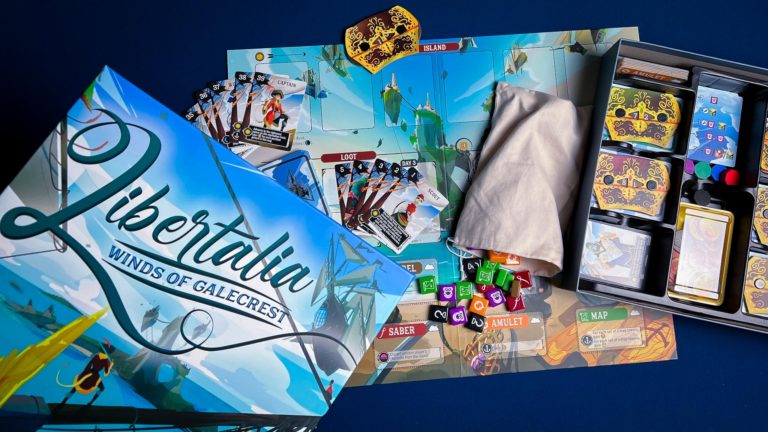In this review we’re sharing our thoughts on Stella, an art driven party game set in the Dixit universe.
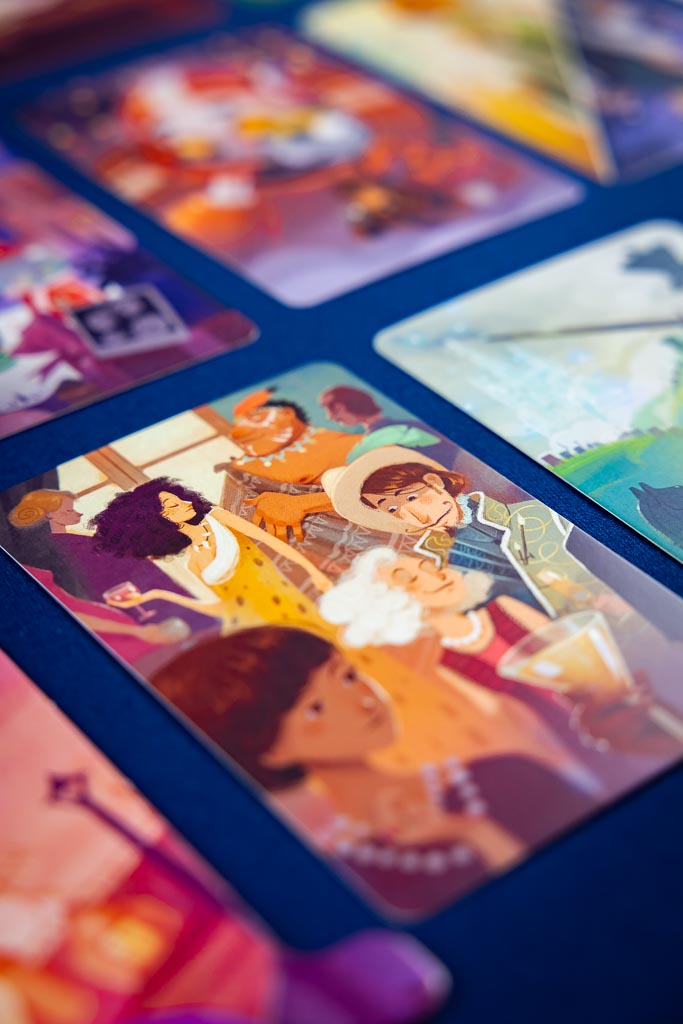
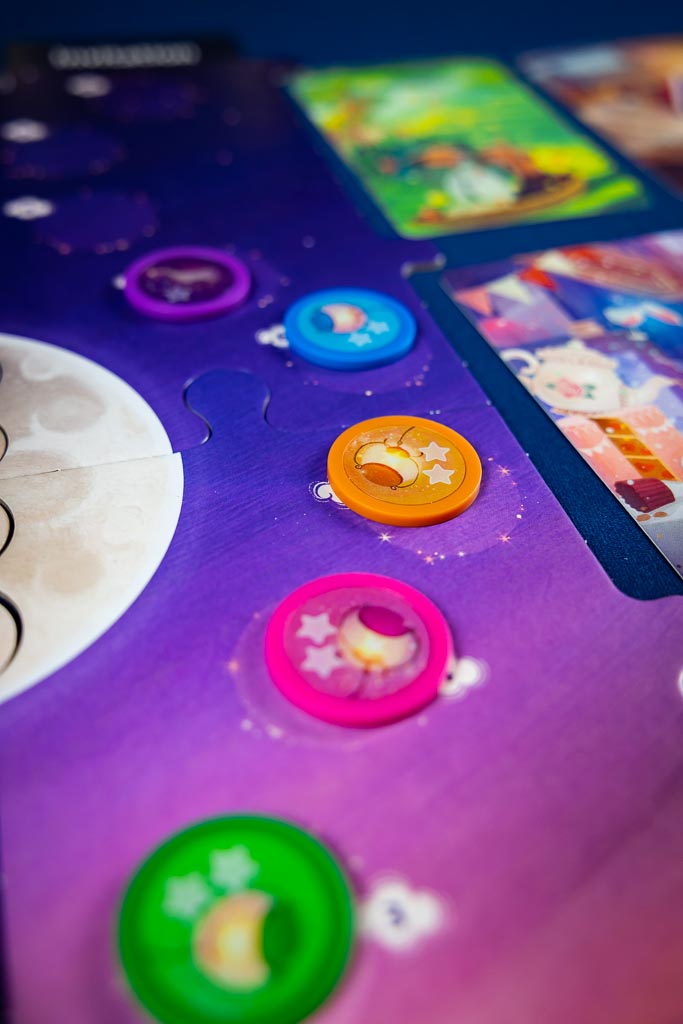

How Do You Play Stella?
Stella is set in the Dixit Universe and is played with Dixit cards over four rounds.
Each round, players will interpret Dixit cards based on the word revealed for the round.
Each player will observe the cards and privately mark on their player board which cards they think can be associated with the word.
Once all players have marked their cards, players, in turn order, reveal one of the cards they chose. If other players also associated that card, they all fill in two stars on their player board next to that card. The next player then reveals a card they associated with the word.
Players who reveal a card that was also chosen by just one other person earn a Super Spark and both fill in three stars.
If a player associated a card with the word that no one else associated, then they “fall” and are unable to score any more points for the round. However, they will still announce if they associated a card that a player who has not fallen selected so players who have not fallen can earn points.
Once all players have fallen or there are no more cards to reveal, players tally their scores on the tracker and erase their personal boards.
After each round, a row of cards is cleared out and replaced with new cards. A new word card is selected and play begins again.
The player with the most points at the end of four rounds wins.
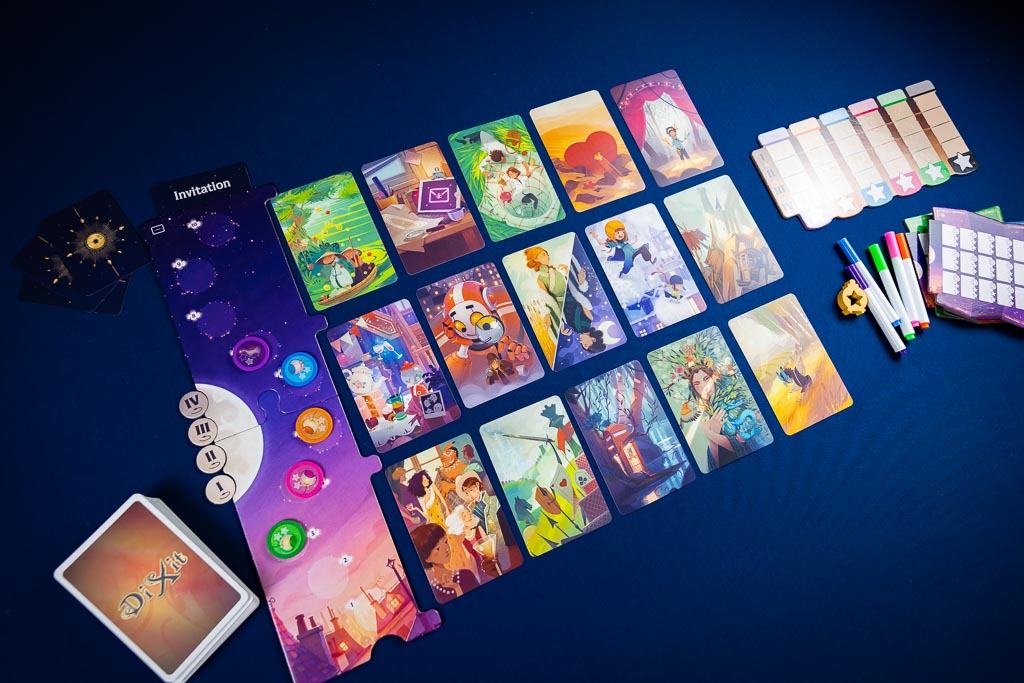

What Do We Think of Stella?
Stella is a fantastic game for anyone who loves the art heavy, card interpretation games but isn’t looking for the performative storytelling aspect.
Personally, I was never a huge fan of Dixit. I know many that love it, but for me, it never landed. Stella however is the perfect spin off that fixes many of the issues I had with Dixit. Stella completely removes the judging element of Dixit and replaces it with the very clever association matching. This keeps the game moving at a great pace. There’s also no judging on which cards players chose or any story telling element yet players are still using the cards to associate with a word clue which in a way still brings in that story telling vibe.
I love that players have these dual layers of strategy happening in the game. You only get points if you select cards that other players also selected, so you are disincentivized from having a very broad criteria for which cards you feel associates best with the word.
Yet, you don’t want to be too selective because the only way to get points is by selecting cards. So you find yourself attempting to select enough cards to score higher than the others, but not so many that you’ll risk losing.
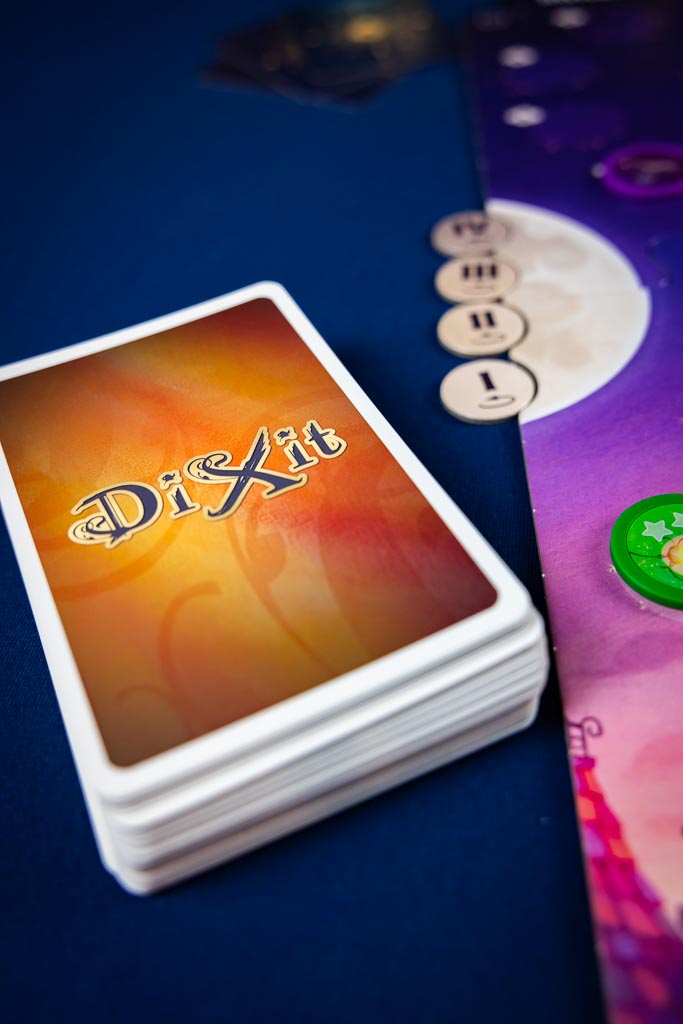
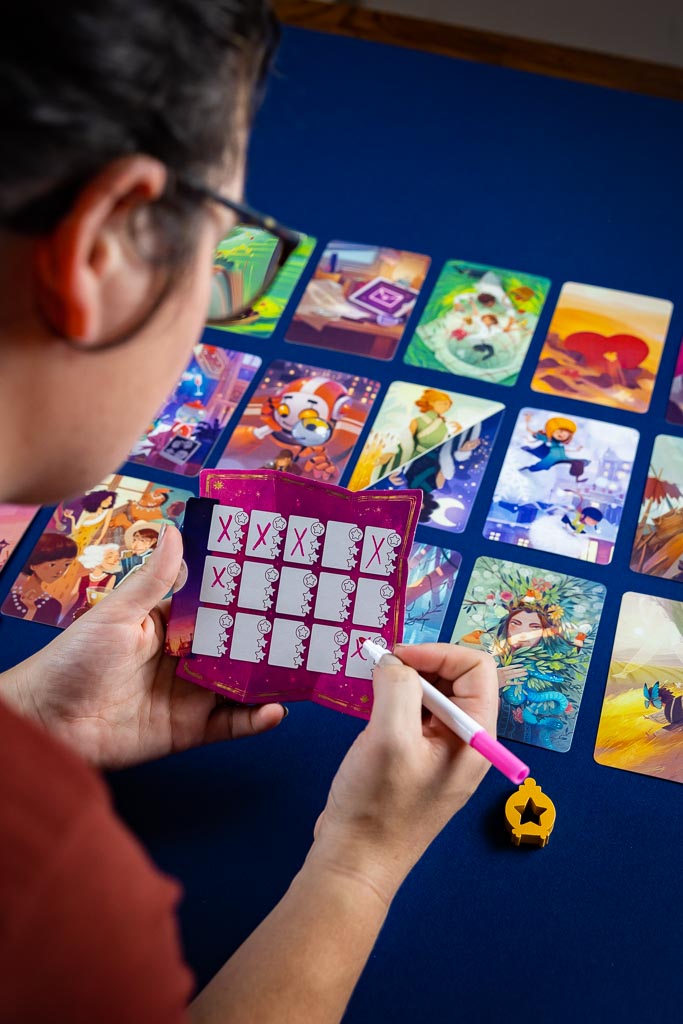
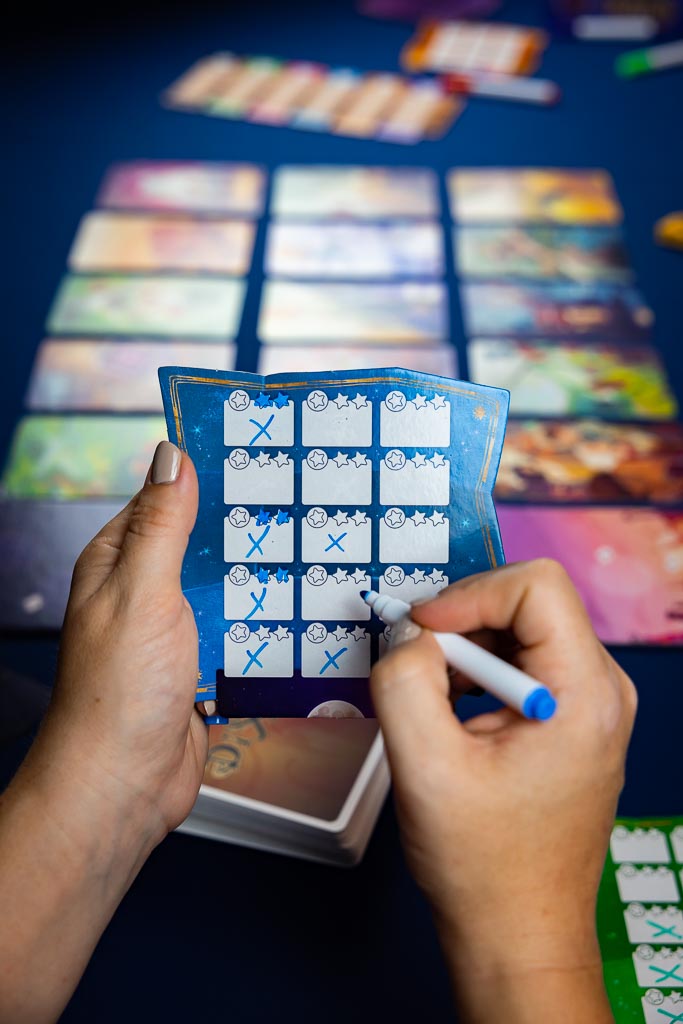
Alone at the Top
Stella cleverly keeps players from being too crazy with their selections by having a leader handicap. Before players begin to show which cards they selected, everyone announces how many cards they associated with the word. You’ll place your token on the track on the number that represents the total number of cards you selected. If you ever select more than all other players you will have extra pressure place upon you to succeed.
Now if you ever “fall” and reveal a card that no one else selected, all of your points you earned lose a star. This effectively halves your score for that round.
This clever bit of rubber banding keeps players from marking off a large percentage of the cards. It adds that small but effective extra layer of strategy that really stops players and has them asking, “Is this card worth the risk?”


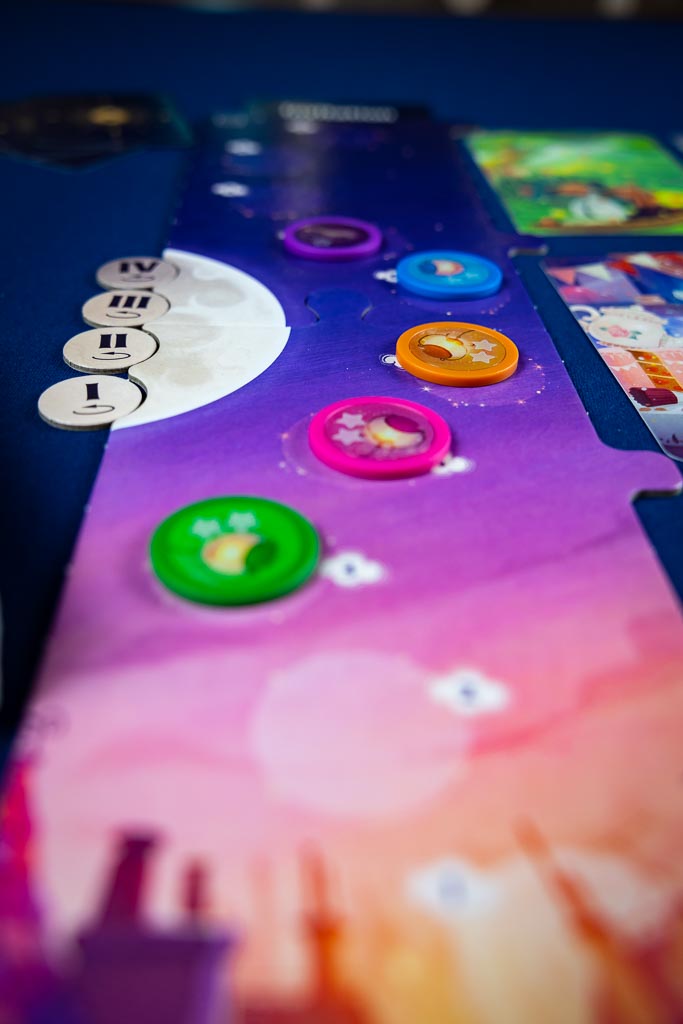
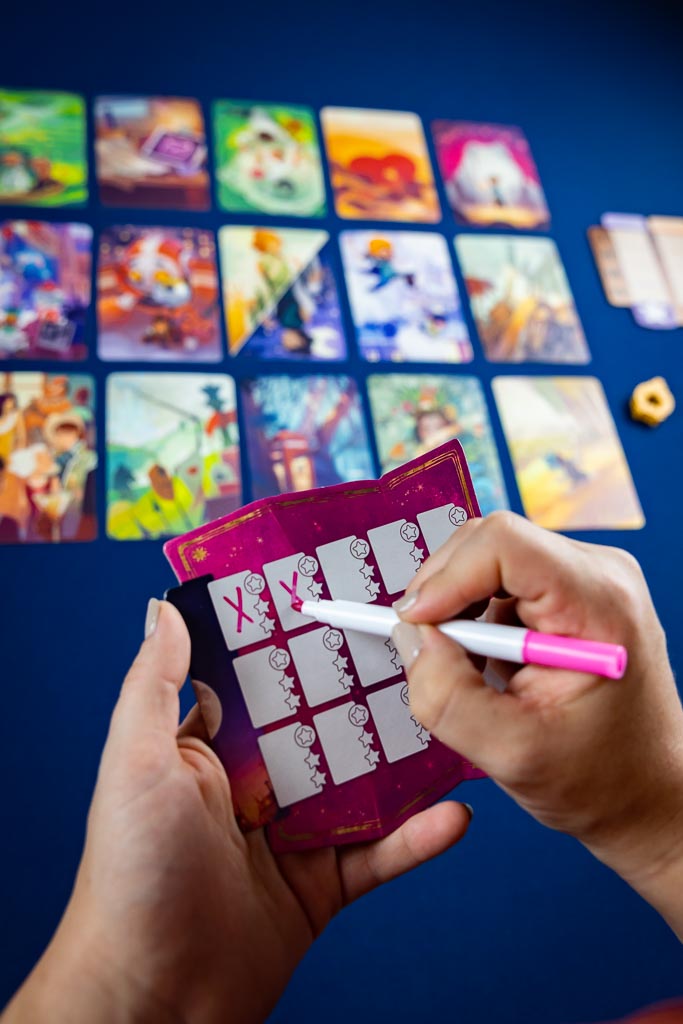
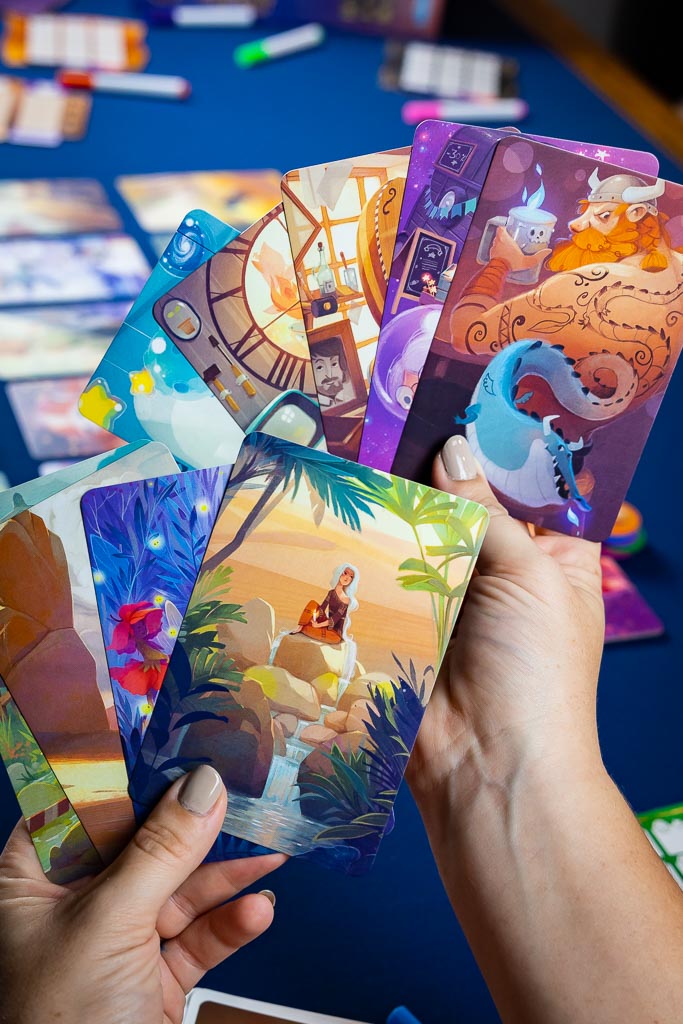

Stella Brings the Fun Dixit Moments
For fans of Dixit, Stella still has a lot of what you love! There are still a lot of fun moments where players are laughing at either how they knew for sure another player would select a card because of insert special memory here. That’s where a lot of the exciting Super Spark moments come from and we were all surprised by how exciting that felt to match with just one other person.
Even when you don’t match, it’s still fun to hear how others interpreted the cards differently and why they thought others might have associated them with the words.
We also really appreciated that while the player is unable to score any more points once they fall, they aren’t eliminated from the round and still participate in announcing associations with other players who haven’t fallen.
Also: three cheers for removing the voting/judging element and contrived scoring of Dixit.
Stella feels completely streamlined for families. After a few plays of Stella, we found ourselves asking if we would ever go back to playing Dixit. The answer was overwhelmingly no. But the Dixit cards might find their way into the Stella box.
Party Game Feel
Stella has a definite party game feel without feeling like a hoot and hollering sort of game.
It has both a fun yet subdued feel to it. Due to this, I think Stella is a great choice for groups that want a bit more structure to their games, aren’t looking for that more performative/creative side found in Dixit, yet still want a relaxed game they can chat over while playing.
For smaller parties of 5 and 6, this is an excellent fit!
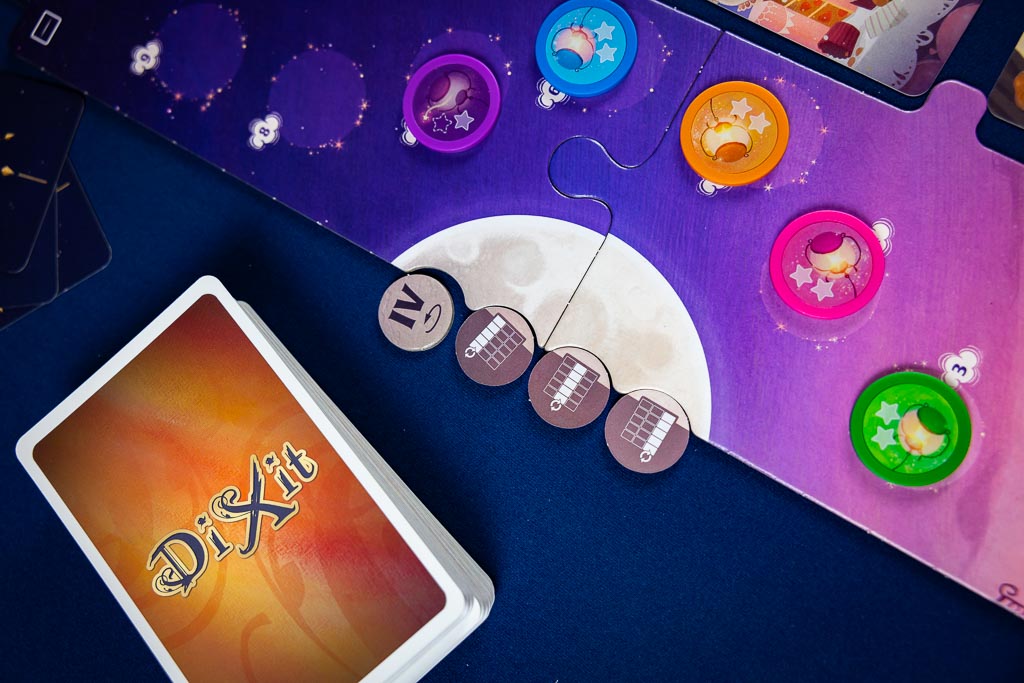

Summary
Stella transforms the fun of Dixit into a more structured, push your luck, deduction game that is perfectly streamlined for families. Stella is simple enough players as young as 6 can join in the fun making it a great choice for family game night.
Bring home a copy of Stella for your family.
Find this and all our top board game recommendations on our Amazon Storefront
Game Info:
Title: Stella
3-6 Players Ages 8 and up
Designer: Gerald Cattiaux, Jean-Louis Roubira
Artist: Jerome Pelissier
Publisher: Libellud
If You Liked This Post You May Also Like:
Detective Club
Hues and Cues
Great Board Games like Ticket to Ride

